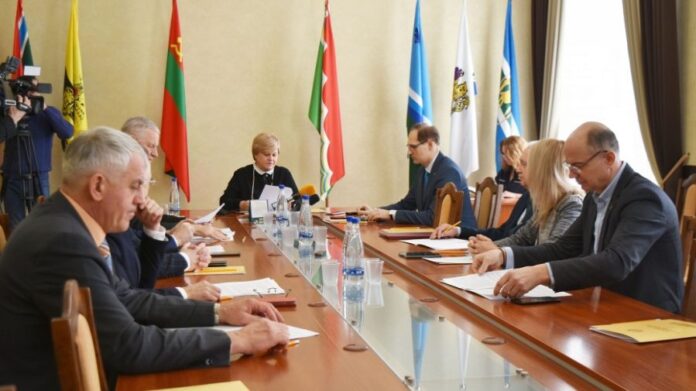The so-called Supreme Council of Transnistria is meeting on Wednesday, in order to draw up a statement regarding the “separatism law” adopted in Chisinau in its final reading. The local press writes that this document will be sent to all participants in the 5+2 negotiation format in resolving the Dniester conflict and international organizations.
Today, the draft document was examined by the so-called Armed Forces Commission for Foreign Policy and International Relations. “Our hopes that reason would prevail [and the law would not be passed in the second reading] were not justified. And we can only be concerned about how it will be applied to the residents of Transnistria,” said Galina Antiufeeva, vice-president of the so-called Supreme Council.
Commenting on the results of the meeting of the foreign policy commission, she emphasized that the Supreme Council “cannot stand aside”. “Together with the President and the Government, we are bound to protect the rights and freedoms of our citizens, the right to live freely and prosperously on our land.”
She expressed her hope that the international mediators will help resume the negotiation process both in the 5+2 and 1+1 format, that is, at the level of the presidents and, eventually, of the Parliaments of Transnistria and the Republic of Moldova.
FOR THE MOST IMPORTANT NEWS, SUBSCRIBE TO OUR TELEGRAM CHANNEL!
“The Vice-President of the Supreme Court once again asked the Moldovan side to solve all the problems peacefully, at the negotiation table”, writes the local media.
The so-called Minister of Foreign Affairs of Transnistria, Vitali Ignatiev, highlighted the current situation in the process of negotiations between Tiraspol and Chisinau, in light of the adoption of the “law of separatism”. According to him, the Moldovan side is increasingly trying to apply pressure measures against Transnistria.
“Under these conditions, both political-diplomatic and parliamentary methods must be used for protection.”Vitali Ignatiev drew attention to the fact that after the adoption of the “law of separatism”, the rhetoric of both the representatives of the authorities of the Republic of Moldova and individual Moldovan experts became even more aggressive.
“A certain informational pressure is being created on Transnistria in order to intimidate,” the so-called Transnistrian foreign minister said. In his opinion, “Moldova is shy to say that it is officially withdrawing from the negotiation process, but de facto it has not participated in a constructive dialogue for more than 3 years and has not fulfilled its obligations”. In itself, the introduction of the current amendments to the Criminal Code shows that Chisinau is hardly ready for constructive interaction with Transnistria.


